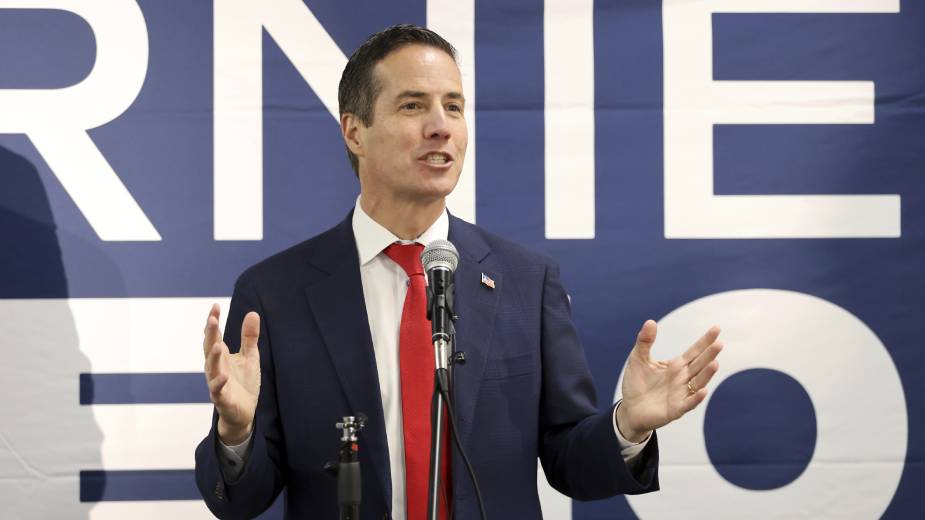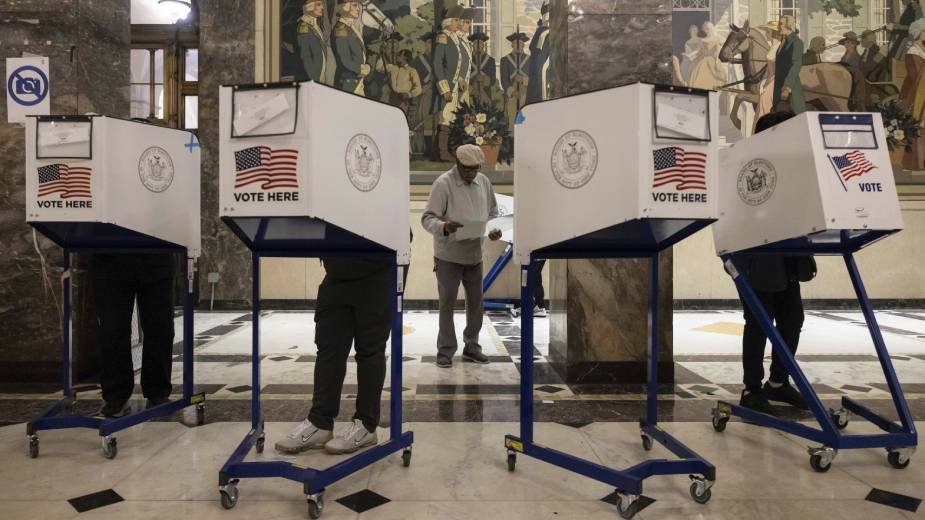Labor, Lawmakers Launch Campaign Against Fast Track
LORDSTOWN, Ohio — A coalition of organized labor and Ohio lawmakers selected the Mahoning Valley as the launch pad Saturday for a statewide initiative to deny President Obama “fast-track” authority to negotiate trade agreements.
“This is the first of many more [meetings] in the days ahead,” Tim Bruga, president of the Ohio AFL-CIO told some 200 members of labor organizations gathered at the Local 1112 union hall of the United Autoworkers. “Fast track doesn’t work,” he said. “Let’s slow it down and get it right.”
Bruga, U.S. Sen. Sherrod Brown, D-Ohio, U.S. Rep. Tim Ryan, D-13 Ohio, Darryl Parker, retired president of Local 1375 of the United Steelworkers, and Ken Lortz, director of UAW Region 2-B, all agree that trade agreements negotiated under fast track — such as the North American Free trade Agreement, or NAFTA — have harmed the U.S. economy and middle class.
The Obama Administration is asking Congress for fast track authority to negotiate a trade agreement with the Trans Pacific Partnership, or TPP. The complex negotiations involve 16 nations in Asia, North America and South America.
Fast track allows the president to present the agreement to Congress with little or no debate from the legislators. The U.S. House of Representatives or the Senate cannot amend or filibuster any trade agreement negotiated under fast track. The legislators can vote only to approve or reject such a treaty.
Brown recalled that in 1993, as a newly elected congressman, he voted against Nafta because he believed it would be detrimental to the American worker. Five years later, he made a trip to Mexico to gauge the impact of the agreement.
During those five years, the senator said, U.S.–owned auto companies and suppliers had constructed sophisticated, modern production plants just across the border. He saw “one glaring difference” than what he saw at U.S. work sites. “The difference was that there was no parking lot,” Brown said. “The workers couldn’t afford to buy the cars they were making.”
The same impact can be seen across the globe in countries in Central America and Asia, Brown noted, adding that trade agreements haven’t boosted the living standards of the workers in these regions.
Brown told the crowd that the secrecy surrounding these pacts, most notably the TPP, is more intense than the CIA briefings he’s attended. His staff researchers, he noted, can’t examine the trade agreement without the senator present, although they do have clearance to read documents related to the CIA or foreign policy without his presence. The TPP, for example, is 500 pages long with complex cross-references, making it difficult to discern what is in them.
“That alone should make us think twice about doing something like this,” Brown said.
In all his years in office, the senator said, he’s never witnessed such across-the-board solidarity among the unions in response to a single issue: “This is the first time I’ve seen, on any issue, that every single international president of every single union in the country is on the same page.”
Ryan, who like Brown is a longtime advocate of U.S. trade reform, said these trade agreements threaten the very base of American manufacturing. “These trade agreements, in my estimation, are about our values and where we stand on manufacturing and the ability to make something,” he said. “You’ve got to produce something. You’ve got to make something. We’re losing the driver of the economy.”
Ultimately, Ryan said, it’s campaigns such as this that will catch the attention of the public and put needed pressure on officeholders who have to answer to the American people. “At the end of the day, there are going to be elected officials, in a democracy, in the United States, who are going to be on a ballot,” he declared. “You’ve got visualize and then organize.”
Fast track has led to the loss of “thousands of jobs” in this country, added Ken Lortz, director of UAW Region 2-B. He estimates that Nafta has, over the last 20 years, cost the American economy 700,000 jobs, while a more recent trade pact with Korea led to the loss of 60,000 jobs. Another 3.2 million jobs have been lost to China through various trade agreements.
What concerns Lortz is that fast track authority isn’t limited to the TPP, but would enable the president to negotiate other agreements in the near term.
“Trade authority is for a designated period of time, usually several years,” Lortz said. “They can run as many pieces of legislation through that block of time as they can create.”
Those who want to see firsthand how trade agreements have hollowed out the American manufacturing economy need only look to Pine Avenue in Warren where RG Steel is being dismantled, said Darryl Parker, retired president of Steelworkers Local 1375.
“When I look at my plant now, it’s a wasteland,” Parker stated. “That’s what happens when you have these fast-track agreements.”
Local 1375 represented 1,100 workers at RG Steel before it shut down in 2012, the last integrated steel mill in the Mahoning Valley. Part of the reason the company closed its doors, Parker said, is because past trade treaties made it possible for those countries to ship lower-cost steel to American ports, thereby undercutting domestic producers such as RG Steel.
Agreements such as Nafta, he warned, “have put us in a hole. Pretty soon, the United States will not make enough steel to supply its own military.”
The AFL-CIO’s Bruga urged union members to write letters to the other U.S. senator from Ohio, Republican Rob Portman, asking him to oppose fast-track authority. A door-to-door initiative will soon be underway across Ohio, he said.
“We’re going to be circling the state holding these events,” Bruga said. “We can stand by and get rolled over, but that’s not the Mahoning Valley way. When we come together in the trade union movement, there’s not a more powerful force in the world.”
Pictured: Darryl Parker, Sherrod Brown; Tim Bruga, Tim Ryan and Ken Lortz. Each spoke at Saturday’s forum in Lordstown opposing fast-track authority for trade pacts.
Copyright 2024 The Business Journal, Youngstown, Ohio.



